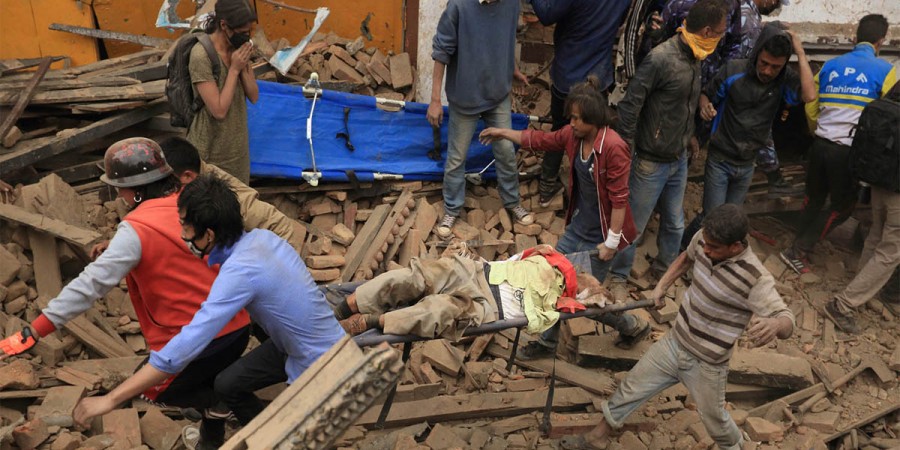It has been an honour to serve on the United Nations Secretary General’s High Level Panel on Humanitarian Financing over the last few months – but it has also been a dismaying experience in many ways. To me it is deeply frustrating that, as civilised humanity, we have not yet come up with a system for raising sufficient money, with sufficient reliability, to support those acutely affected by disaster, disease and displacement. I hope that our report, due to be launched this coming weekend in Dubai by the Secretary General, will help address some of the gaps.
As someone whose day job is focused on strengthening civil society, I have been particularly dismayed by both the figures and debates around localisation in the humanitarian sector. It is staggering to see how little of the official international humanitarian aid goes directly to local actors – we too will cite the now-infamous 0.2% statistic – but it is just as staggering to see how potentially divisive the debate about what to do about the situation can be, as I saw first-hand at the Geneva WHS consultation.
Speaking personally, and not on behalf of the panel, I see three basic tensions that need to be resolved if we are to make serious progress on localisation.
Philosophy. At the heart of the debate is the tension around whether strengthening local capacity should be a primary aim of humanitarian intervention or whether this is a ‘nice-to-have’ that is secondary to delivering high-quality, timely interventions. My own views is that strengthening local capacity cannot be incidental; donors and international agencies need to think about their impact on the local context, both positive and negative, at every possible turn. Investing in the capacity of local actors will not just lead to short-term efficiency gains but also promote local ownership, strengthen local civil society more generally, and increase that society’s capacity to manage future shocks.
Practical. Another fault line is around what should be done to promote localisation. There seems to be no shortage of warm words supporting localisation but I saw relatively few practical steps being taken to make a positive change. We need more commitments like the one made by signatories to the Charter for Change to allocate at least 20% of their resources directly to Southern-based NGOs in the two years after the WHS. We also need to invest in fundermediaries that can devolve decision-making on resource allocation closer to the ground, whether through Southern pooled funds of the sort Adeso and its partners are proposing or through using Country Based Pooled Funds more effectively. It became clear through the panel experience that donors hold the key to driving some of these key changes, but civil society also needs to lead the way.
Political. There are two political challenges that struck me over the last few months. The first is that there is a job to be done to convince sceptical governments that strengthening local civil society is a good in itself. As my colleagues at CIVICUS have shown there were serious threats to civic space in some 96 countries in 2014. The humanitarian sector needs to play its part in making the case for why the enabling environment for local society is critical. The second is a challenge of avoiding simplistic and unhelpful debates within civil society. This is not about whether international or local actors are better than the other; both need to be strong in a functioning ecosystem, and both need to work together in constructive ways.
I hope that our panel’s report will help move the needle on localisation. But, more importantly perhaps, I hope that the WHS will result in a new resolve by all parties, backed by concrete measures, to nurture local civil society, both as a means to better humanitarian interventions and an end in itself.


Comments